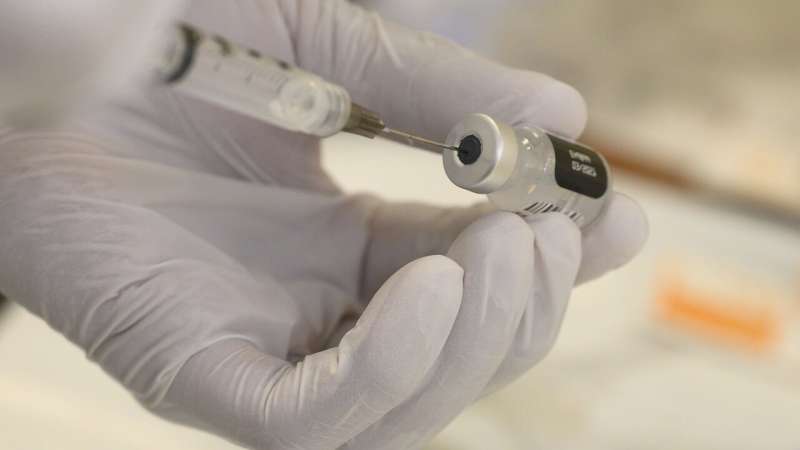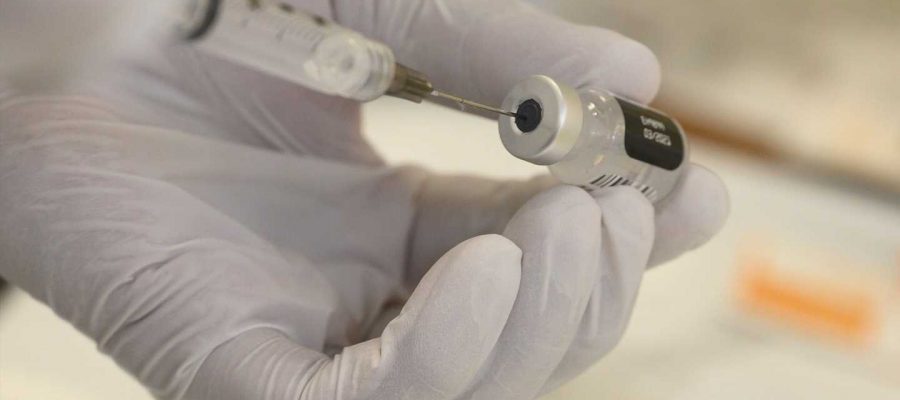
The placebo effect is the well-known phenomenon of a person’s physical or mental health improving after taking a treatment with no pharmacological therapeutic benefit—a sugar pill, or a syringe full of saline, for example. While the exact biological, psychological and genetic underpinnings of the placebo effect are not well understood, some theories point to expectations as the primary cause and others argue that non-conscious factors embedded in the patient-physician relationship automatically turn down the volume of symptoms. Sometimes placebo effects can also harm –the so-called “nocebo effect” occurs when a person experiencing unpleasant side effects after taking a treatment with no pharmacological effects. That same sugar pill causing nausea, or that syringe full of saline resulting in fatigue.
In a new meta-analysis of randomized, placebo-controlled COVID-19 vaccine trials, researchers at Beth Israel Deaconess Medical Center (BIDMC) compared the rates of adverse events reported by participants who received the vaccines to the rates of adverse events reported by those who received a placebo injection containing no vaccine. While the scientists found significantly more trial participants who received the vaccine reported adverse events, nearly a third of participants who received the placebo also reported at least one adverse event, with headache and fatigue being the most common. The team’s findings are published in JAMA Network Open.
“Adverse events after placebo treatment are common in randomized controlled trials,” said lead author Julia W. Haas, Ph.D., an investigator in the Program in Placebo Studies at BIDMC. “Collecting systematic evidence regarding these nocebo responses in vaccine trials is important for COVID-19 vaccination worldwide, especially because concern about side effects is reported to be a reason for vaccine hesitancy.”
Haas and colleagues analyzed data from 12 clinical trials of COVID-19 vaccines. The 12 trials included adverse effects reports from 22,578 placebo recipients and 22,802 vaccine recipients. After the first injection, more than 35 percent of placebo recipients experienced systemic adverse events—symptoms affecting the entire body, such as fever—with headache and fatigue most common at 19.6 percent and 16.7 percent, respectively. Sixteen percent of placebo recipients reported at least one local event, such as pain at site of injection, redness or swelling.
In comparison after the first injection, 46 percent of vaccine recipients experienced at least one systemic adverse event and two-thirds of them reported at least one local event. While this group received a pharmacologically active treatment, at least some of their adverse events are attributable to the placebo—or in this case, nocebo—effect, as well given that many of these effects also occurred in the placebo group. Haas and colleagues’ analysis suggested that nocebo accounted for 76 percent of all adverse events in the vaccine group and nearly a quarter of all local effects reported.
After the second dose, adverse events among the placebo group dipped to 32 percent reporting any systemic events and 12 percent reporting any local effects. In contrast, participants who received the vaccine reported more side effects, with 61 percent reporting systemic adverse events and 73 percent reporting local adverse events. The researchers calculated that nocebo accounted for nearly 52 percent of the side effects reported after the second dose. While the reason for this relative decline in nocebo effects cannot be confirmed, the researchers believe that the higher rate of adverse events in the vaccine group the first time may have led participants to anticipate more the second time.
“Nonspecific symptoms like headache and fatigue—which we have shown to be particularly nocebo sensitive—are listed among the most common adverse reactions following COVID-19 vaccination in many information leaflets,” said senior author Ted J. Kaptchuk, director of the Program in Placebo Studies and the Therapeutic Encounter at BIDMC and professor of medicine at Harvard Medical School. “Evidence suggests that this sort of information may cause people to misattribute common daily background sensations as arising from the vaccine or cause anxiety and worry that make people hyper alert to bodily feelings about adverse events.”
Kaptchuk and colleagues are known for a large and growing body of evidence showing that full disclosure of placebo treatment, what he calls “open label placebo,” can actually improve common chronic conditions without any nocebo effects. While some researchers believe that informing patients about adverse effects may cause harm, Kaptchuk believes it is ethically necessary to fully inform participants about the vaccines’ potential adverse reactions.
“Medicine is based on trust,” said Kaptchuk. “Our findings lead us to suggest that informing the public about the potential for nocebo responses could help reduce worries about COVID-19 vaccination, which might decrease vaccination hesitancy.”
Source: Read Full Article
